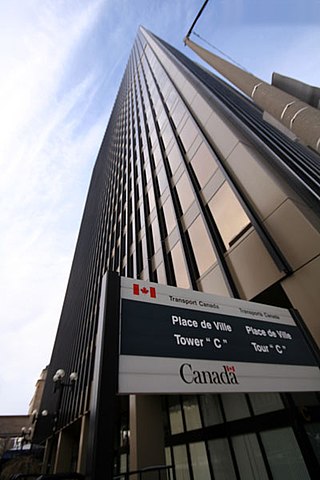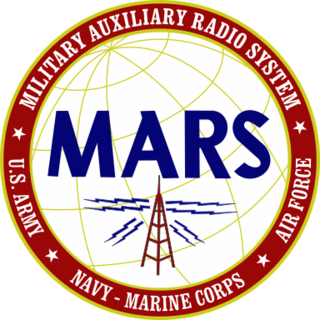
A coast guard or coastguard is a maritime security organization of a particular country. The term embraces wide range of responsibilities in different countries, from being a heavily armed military force with customs and security duties to being a volunteer organization tasked with search and rescue without law enforcement authority. In most countries, a typical coast guard's functions are distinct from those of the navy and the transit police, while in certain countries they have similarities to both.

Search and rescue (SAR) is the search for and provision of aid to people who are in distress or imminent danger. The general field of search and rescue includes many specialty sub-fields, typically determined by the type of terrain the search is conducted over. These include mountain rescue; ground search and rescue, including the use of search and rescue dogs ; urban search and rescue in cities; combat search and rescue on the battlefield and air-sea rescue over water.
The Canadian Coast Guard College (CCGC) is a maritime training college and Canadian Coast Guard facility located in Westmount, Nova Scotia—a suburb of the former city of Sydney in the Cape Breton Regional Municipality.
The radiotelephony message PAN-PAN is the international standard urgency signal that someone aboard a boat, ship, aircraft, or other vehicle uses to declare that they need help and that the situation is urgent, but for the time being, does not pose an immediate danger to anyone's life or to the vessel itself. This is referred to as a state of "urgency". This is distinct from a mayday call, which means that there is imminent danger to life or to the continued viability of the vessel itself. Radioing "pan-pan" informs potential rescuers that an urgent problem exists, whereas "mayday" calls on them to drop all other activities and immediately begin a rescue.

The Canadian Coast Guard is the coast guard of Canada. Formed in 1962, the coast guard is tasked with marine search and rescue (SAR), communication, navigation, and transportation issues in Canadian waters, such as navigation aids and icebreaking, marine pollution response, and support for other Canadian government initiatives. The Coast Guard operates 119 vessels of varying sizes and 23 helicopters, along with a variety of smaller craft. The CCG is headquartered in Ottawa, Ontario, and is a special operating agency within Fisheries and Oceans Canada.

Transport Canada is the department within the Government of Canada responsible for developing regulations, policies and services of road, rail, marine and air transportation in Canada. It is part of the Transportation, Infrastructure and Communities (TIC) portfolio. The current Minister of Transport is Pablo Rodriguez. Transport Canada is headquartered in Ottawa, Ontario.

A vessel traffic service is a marine traffic monitoring system established by harbour or port authorities, similar to air traffic control for aircraft. The International Maritime Organization defines vessel traffic service as "a service implemented by a competent authority designed to improve the safety and efficiency of vessel traffic and protect the environment. The service shall have the capability to interact with the traffic and respond to traffic situations developing in the vessel traffic service area". Typical vessel traffic service systems use radar, closed-circuit television, VHF radiotelephony and automatic identification system to keep track of vessel movements and provide navigational safety in a limited geographical area.

The Hellenic Coast Guard is the national coast guard of Greece. Like many other coast guards, it is a paramilitary organization that can support the Hellenic Navy in wartime, but resides under separate civilian control in times of peace. The officers and the enlisted members of the Coast Guard are regarded as military personnel under Military's Penal Code. It was founded in 1919 by an Act of Parliament and the legal framework for its function was reformed in 1927. Its primary mission is the enforcement of Greek, European and International law in the maritime areas.

The Military Auxiliary Radio System (MARS) is a United States Department of Defense sponsored program, established as a separately managed and operated program by the United States Army and the United States Air Force. The United States Navy-Marine Corps program closed in 2015. The program is a civilian auxiliary consisting primarily of licensed amateur radio operators who are interested in assisting the military with communications on a regional and national level when access to traditional forms of communication may no longer be available. The MARS programs also include active duty, reserve, and National Guard units; and Navy, Marine Corps units.

2182 kHz is a radio frequency designed exclusively for distress calls and related calling operations in the maritime service. It is equivalent to a wavelength of 137.4 metres.
The Port of Montreal is a cruise and transshipment point. It is located on the St. Lawrence River in Montreal, Québec, Canada. The port operates as an international container port. It services Toronto, the rest of Central Canada, the Midwestern United States, and the Northeastern United States. Though found on the Saint Lawrence Seaway, it is some 1,600 miles (2,600 km) inland from the Atlantic Ocean and it is on the shortest direct route between the North American Midwest and Europe or the Mediterranean.
Bravo Zulu (BZ), the combination of the Bravo and Zulu nautical signal flags, is a naval signal, typically conveyed by flaghoist or voice radio, meaning "well done" with regard to actions, operations or performance. In addition to its use in the Royal Navy, it has also been used as vernacular slang within the U.S. Navy, NATO, and other Allied naval forces. It can be combined with the "negative" signal, spoken or written as NEGAT, to say "NEGAT Bravo Zulu" to convey "not well done" for a given action.
The Joint Rescue Coordination Centre Victoria (JRCC Victoria) is a rescue coordination centre operated by the 1 Canadian Air Division (Canadian Armed Forces) and staffed by personnel of the Royal Canadian Air Force (RCAF) and the Canadian Coast Guard (CCG).

The Joint Rescue Coordination Centre Halifax is a rescue coordination centre operated by the Royal Canadian Air Force (RCAF) and the Canadian Coast Guard (CCG).
A continuous marine broadcast, or CMB, is a marine weather broadcasting service operated by the Canadian Coast Guard. CMBs are programmed from the various Marine Communications and Traffic Services centres on the Atlantic, Pacific and Arctic coasts of Canada, as well as on the coasts of the Great Lakes. Programming is broadcast in English and French on the Atlantic Coast and along the Saint Lawrence River, and in English only on the Great Lakes, Arctic Coast and Pacific Coast.
The Joint Rescue Coordination Centre Trenton is a rescue coordination centre operated by the Royal Canadian Air Force (RCAF) and the Canadian Coast Guard (CCG). It is located on CFB Trenton in Astra, Ontario near Quinte West.
A rescue co-ordination centre (RCC) is a primary search and rescue facility in a country that is staffed by supervisory personnel and equipped for co-ordinating and controlling search and rescue operations.
Royal Canadian Marine Search and Rescue (RCMSAR) is a volunteer marine rescue service that saves lives and promotes public recreational boating safety throughout the coastal and some inland waters of the province of British Columbia and is associated with the national organization of the Canadian Coast Guard Auxiliary.









